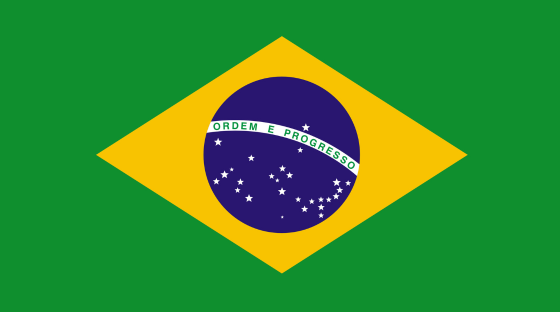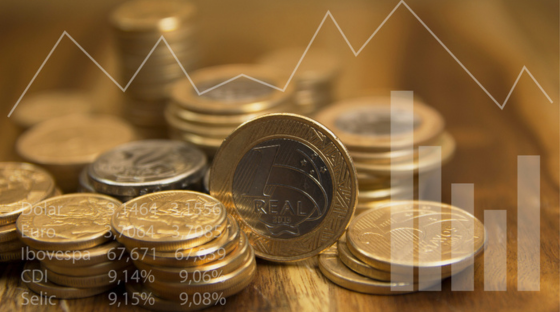Brazil
Leverage Brazil's tech powerhouse and leadership in Global AI Governance.

Overview
The largest economy in Latin America – and one of the largest e-commerce markets in the world – Brazil has a rapidly expanding technology sector. Foreign investment in domestic startups has more than doubled in the past few years and several of the world’s biggest tech companies are major players in the country’s IT industry.
In November 2024, Brazil will host the annual G20 summit for the first time, where it will lead efforts to develop the first global AI framework. A key side event, “Artificial Intelligence for Sustainable Development and Reduction of Inequality”, is being held during the summit by the Digital Economy Working Group to address the social and political impacts of the advancement of digital technologies.
The Brazilian central bank has announced that the country will launch a digital currency in 2024 to enhance international trade, tokenize internal markets, and obtain efficiency gains for the economy.
The Accelerance Global Network is the most curated list of high-quality global teams ever assembled.
7200
Developers
Total number of developers in our certified partner network by country
4
Certified Partners
Total number of certified partners in our global network by country.
10hrs
Time Travel (From NY)
Average flight time from NY to the major cities in the country.
40
Partner Innovation capability
The score reflects investment in STEM progrms and IT funding by country.
93
Partner Skill Level
Level of workforce skills and quality of education, including factors such as digital literacy, interpersonal skills, etc.
72
Partner Global Competitiveness
National productivity based on 12 core pillars, including government policy, infrastructure, economic stability, etc.
High
Software Outsourcing Readiness
Overall rating, based on the maturity of the tech sector, socio-political conditions, and on-the-ground research by Accelerance.
.png?width=600&height=375&name=Untitled%20design%20(37).png)
Talent Pool & Education
Ranked 12th in the global IT market, Brazil accounts for more than a third of the overall Latin American market share. The country has one of the highest startup rates in the world, the majority of them based in the city of São Paulo, and is home to eight unicorn companies. The talent pool in the country is vast, with more than 630,000 software engineers working in the IT services sector and 133,000 specializing in software development.
Brazil’s reputation continues to grow as an impressive force of creativity and innovation. The country is particularly strong in the fintech and agriculture sectors and has a growing artificial intelligence sector, which according to the US Department of Commerce, is expected to grow more than 30% annually.
The government is actively supporting the growth of the tech sector through the implementation of a variety of supportive incentives, such as the Internet of Things (IoT) national plan and the Growth Acceleration Program (PAC). Launched in 2023, the $5.5 million program includes an investment package to address the crucial need for internet access and technology in education and healthcare, with the bulk of the fund earmarked for the deployment of 5G infrastructure and the expansion of 4G coverage.
Language
Portuguese is the official language. English proficiency in the general population is low, with around 5% of the population speaking it to some degree. However, English is widely used in the business community with fluency more common among workers who are used to operating in an international environment.

Economic Outlook
After a strong rebound in 2023 driven by an exceptional agriculture harvest in the first quarter, Brazil's economy is expected to cool amid a political tug-of-war over adjustments needed to meet the government's ambitious budgetary goals and the legacy of high-interest rates. Economic activity is likely to gain traction over the course of the year as inflation eases and the central bank continues to loosen monetary policy. Private investment should also see a slight recovery, with declining commodity prices being offset by agricultural products, which will drive a continued expansion of exports.
Greater than anticipated GDP growth has been partly attributed to improved investor optimism over Finance Minister Fernando Haddad's efforts to rectify deep imbalances. The picture on that front is now more mixed as the Government faces opposition in implementing some of its policy goals and outlays to fund social plans risk rising faster than federal revenues, despite a variety of different tax initiatives from Haddad.
Despite recent trends towards a grimmer budget reality, President Luiz Inácio Lula da Silva is making some progress in his second year in office, according to Joao Leme, an analyst at Tendencias consultancy. "There are positive surprises with respect to recently approved fiscal measures, the settlement of accumulated court-ordered payments, and spillover effects from the [federal investment] PAC program."
Political Conditions
Luiz Inácio Lula da Silva (known simply as Lula) of the leftist Partido dos Trabalhadores party took office in early 2023, after narrowly defeating far-right President Jair Bolsonaro, who served a controversial term during the COVID-19 pandemic. Shortly after Lula’s inauguration, supporters of Bolsonaro invaded and damaged the presidential palace, Congress, and Supreme Court in Brasília, requiring intervention by the Armed Forces. The uprising was contained without major disruption and although the political climate remains polarized, tensions have eased considerably in 2024.
Lula favors a more active role for the state in the economy, including tax reform, raising the participation of state banks, halting new privatizations and shifting the emphasis to public-private partnerships, and reversing the state-owned oil company Petrobras’s divestment policy towards a greater state commitment to increasing domestic energy autonomy.
The government has already scored some important victories during its first year in office: Congress approved a new, more flexible fiscal framework that allows real spending to rise by up to 70% of revenue growth, as well as a long-awaited tax simplification reform that consolidates several taxes into a dual value-added tax (VAT) system. However, there have also been setbacks, with the Brazilian Congress blocking Lula’s veto of a bill that entailed a tax waiver of more than $5.1 billion that had not been included in the 2024 budget.
Learn more about our customer stories.
Looking for a customer story in a specific technology or industry? Discover compelling customer narratives within a specific technology or industry that resonate with your unique software development needs.


.png?width=300&name=Copy%20of%20WEBSITE%20Stop%20Chasing%20Low%20Hourly%20Rates%20Unlock%20the%20True%20Value%20of%20Offshore%20Development%20(450%20x%20253%20px).png)



